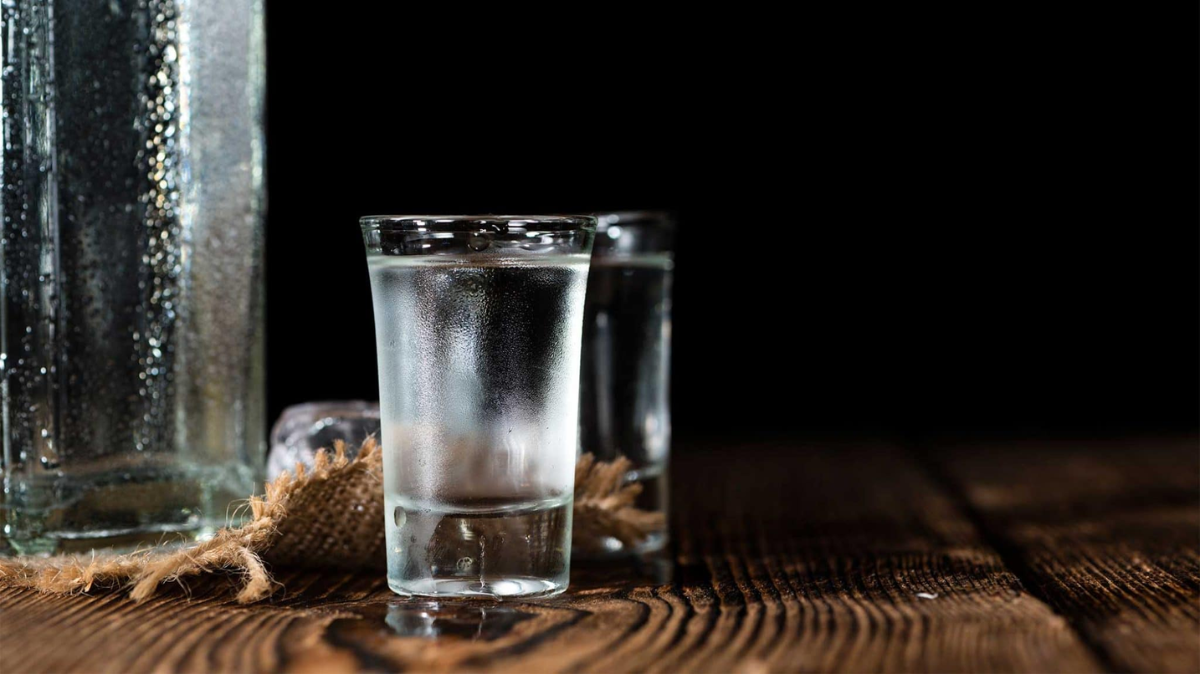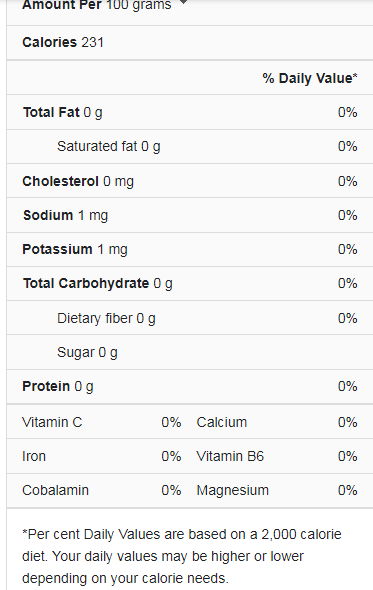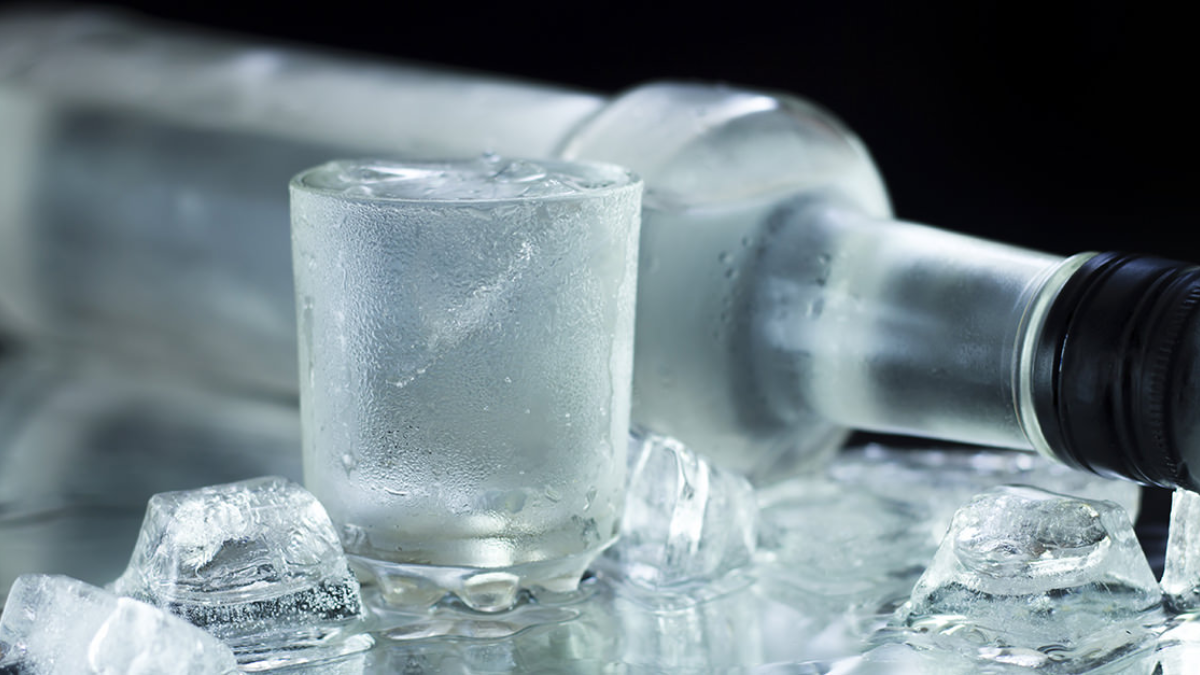You’ve come to the correct place if you’ve ever had a half-empty bottle of Vodka sitting in the cabinet and wondered, “Does vodka go bad?”. It’s the same if you still have a few bottles from your birthday celebration two years ago. Vodka is a type of liquor that is typically only sometimes consumed in homes. When our friends arrive, we buy one or two bottles to make cocktails, but after the party, we are still left with a half-full bottle.
Opening a bottle of wine is significantly simpler most of the time or we purchase a bottle to enjoy a fancy drink with our spouse but only consume a glass of wine. To prepare a drink, you must look up recipes and gather the necessary ingredients. In the end, the vodka bottle sits in the beverage cabinet, frequently for long periods. The good news is that the Vodka is probably still in excellent condition after all this time in storage.
Vodka Nutrition Facts
How to Tell if Vodka is Bad?
Vodka practically never goes bad. Because alcohol evaporates more quickly than water, you should be aware that the alcohol gets weaker with time.
Some alcohol will evaporate if you keep an unsealed bottle in poor storage for a few decades. If that is the case, it is theoretically possible that the liquid’s proof will drop to a point where some bacteria or yeast strains may be able to grow there. In that instance, consuming Vodka could result in food poisoning.
That means it’s time to throw away your opened bottle of Smirnoff if it has reached adulthood and you didn’t care about how it was stored. Once more, this is the worst-case scenario and is unlikely to occur. Realistically, the worst that can happen to alcohol is that it will start to taste bad.
Of course, Vodka also exhibits the usual indicators of deterioration. That means toss the alcohol if it starts to smell bad, has pollutants inside the bottle, or has a terrible flavor. Safer to be safe than sorry.
How to Store Vodka?
Like whiskey or Vodka’s relative brandy, Vodka should be stored in the same manner as other alcoholic beverages.
Keep it out of direct sunlight and other heat sources if you want to preserve its quality for as long as possible. The bottle should, if at all possible, remain upright to avoid any leaks.
The bottle should be tightly closed after being opened using the original cap before being placed back into the cabinet. Replacement caps will probably not seal the bottle as well as the first one did.
Finally, never store Vodka (or any other alcoholic beverage) with a bottle pourer. Use the original cap to close the bottle after using this instrument.
Put the Vodka in the refrigerator for a few hours if you want to serve it chilled. Instead, you can use the Freezer to hasten the procedure. Alcohol won’t freeze, so don’t worry. Vodkas freeze at temperatures lower than -10 degrees F (or -23 degrees C), and your Freezer probably can’t get close to that.
If your vodka bottle is less than halfway filled, you might choose to transfer the remaining liquor into a different size glass bottle. The oxidation process moves more slowly in bottles with less air. Thus, the flavor will last longer.
Of course, applying this advice only makes sense if you anticipate keeping the Vodka in the cupboard for several years. There is no purpose in doing something if you won’t use it for another week, month, or six months. The flavor doesn’t lose much in such a brief time.
How Long does Vodka Last?
You can preserve Vodka for a very long period because it is a stable, distilled spirit. The bottle’s shelf life is essentially infinite if left unopened. If you drank alcohol bottled in 1980 and consumed in 2020, it should taste almost identical to alcohol consumed in 1980.
Why is it “nearly precisely” rather than “exactly”? Even a bottle that hasn’t been opened isn’t completely sealed, especially if the cap is made of a natural material like cork, so the contents slowly evaporate. If the bottle’s cap is made of plastic, the alcohol’s flavor will probably deteriorate gradually after a few decades. The chemicals leaking out of the plastic are to blame for it. There is no reason to be concerned about them because the numbers are small and present no health dangers.
After the bottle is opened, the evaporation process begins to move more quickly. The liquid won’t necessarily evaporate in a year or two, of course. It implies that Vodka will progressively lose its flavor and probably won’t taste as delicious as when you first open it after a decade or two.
Is Expired Vodka Safe to Drink?
Liquor has an endless shelf life, provided it isn’t opened. Alcohol that has been opened has a shelf life of one to two years before it starts to go bad and lose its color and flavor. Avoid using it for good drinks if the entire liquor bottle won’t be consumed within two years. However, it typically doesn’t get harmful. Since Vodka has an infinite shelf life, it doesn’t have an expiration date.
As soon as it is bottled, Vodka ceases maturing, unlike wine and other alcoholic beverages like gin, tequila, rum, and whiskey. A vodka bottle that has been opened can last for a few years. However, it also becomes weaker and loses its flavor and smell after ten years. It is advised to keep an open bottle of Vodka with a screw-top closure in a cool, dark location. Spirits that are 80 proof or higher do not expire.
Any distilled beverage, including gin, Vodka, rum, tequila, and whisky, stops maturing once it is bottled. The first year is when most brands are at their finest. According to Anthony Caporale, a beverage specialist, spirits or liquors including Vodka, tequila, rum, gin, brandy, and whiskey can be chilled or left out at room temperature depending on personal choice. According to Caporale, all types of white wine, champagne, beer, and cider should be refrigerated in the fridge before drinking.
Storing Vodka
You may wonder, “How should I store vodka,” after asking yourself, “Can vodka go bad?” Vodka’s flavor will last longer if it is stored properly. To prolong the flavor of the Vodka, adhere to the following rules:
Light
Keep Vodka away from any bright or direct lights in a dark area. Cabinets and liquor cabinets work well.
Heat
Avoid exposing your Vodka to any extremely hot or cold temperatures. This includes being kept close to heaters or air conditioners.
Capping
Use the original cap at all times, and seal it firmly. Most of the time, replacement caps don’t seal as effectively as the originals. A bottle pourer should never be used in place of a cap while storing liquor bottles.
Why do you Put Vodka in the Freezer?
A liquid becomes more viscous (thick) as the temperature drops. This indicates that Vodka has a superior texture after spending some time in the Freezer. Belvedere’s Claire Smith claims that “Vodka becomes more viscous, richer. The mouth is coated. Any spirit can be considered the same (or liquid, really). You might keep vodka bottles in your Freezer if you have a well-stocked home (and by well-stocked, we mean full of booze).
This appears to be a very typical technique. We didn’t question any of our parents’ many instances of doing this. Vodka is kept in the Freezer since it doesn’t freeze (at least not in a commercial freezer), allowing it to be served cold and refreshingly like a glass of water. It makes logic, so why don’t we apply it to whiskey? This isn’t a big concern for Vodka, though, as it often has a milder flavor and aroma than whiskey.
Vodka is less sophisticated than whiskey; we’ll say that. Fewer impurities are present. That doesn’t make Vodka awful, though. Hey, it’s said to cause fewer hangovers than whiskey. However, the average person won’t notice much difference if you lose some of the vodka flavors. As with wine, which is why we don’t advise freezing it either, a large part of savoring a dram of whiskey is inhaling the aroma.
Why does my Vodka Taste Like Water?
The simple solution is to let the Vodka (which contains only 40% alcohol) stand in a large glass. Nearly all of the alcohol evaporates, leaving water behind (slower evaporation), making the vodka taste like water. It looks like water, tastes like water, and makes you drunk (not at all like water), so no one will ever suspect that the Pura Still soda contains alcohol.
Vodka is the favored liquor among cocktail lovers who dislike the taste of alcohol since it is an odorless, colorless, and tasteless spirit, according to the Bureau of Alcohol, Tobacco, Firearms, and Explosives (ATF). Fermented malted barley extract and natural sugars are added to water, and the soda is naturally flavored. Additionally, Vodka needs to be sealed firmly to avoid oxidation.
An unfavorable change in flavor or consistency might result from too much air interacting with the bottle’s contents, just like with light or heat. Grey Goose has a crisp, clear, and smooth flavor typical of high-quality Vodka. There is a light alcohol taste and a trace of sweetness from the wheat. The finish is clean and smooth; it doesn’t have the burn many of its rivals do.
Conclusion
As long as it isn’t opened, alcohol has an indefinite shelf life. One to two years pass after alcohol is opened before it starts to deteriorate and lose its flavor and color. Avoid using a liquor’s entire bottle for good drinks if it won’t be finished within two years. However, it seldom becomes hazardous. Always use common sense, and discard any old or suspicious alcohol (such as mildew or something floating). Ensuring your booze hasn’t gone bad is vital to a bartender’s duties. Long-term sunshine exposure can make liquor lose its color.
Liquor color fluctuations indicate flavor adjustments. Similar to that, temperature changes can lead to the degradation of an organic molecule called a “terpene,” which alters the flavor of the alcoholic beverage. Lastly, alcohol can oxidize when exposed to oxygen, which changes the flavor. Hard liquor, however, will last indefinitely if you store it out of the sun and at a comfortable temperature. At 30 to 40%, alcohol is not a bacterial-friendly environment. If it isn’t opened, there won’t be much oxidation either.



